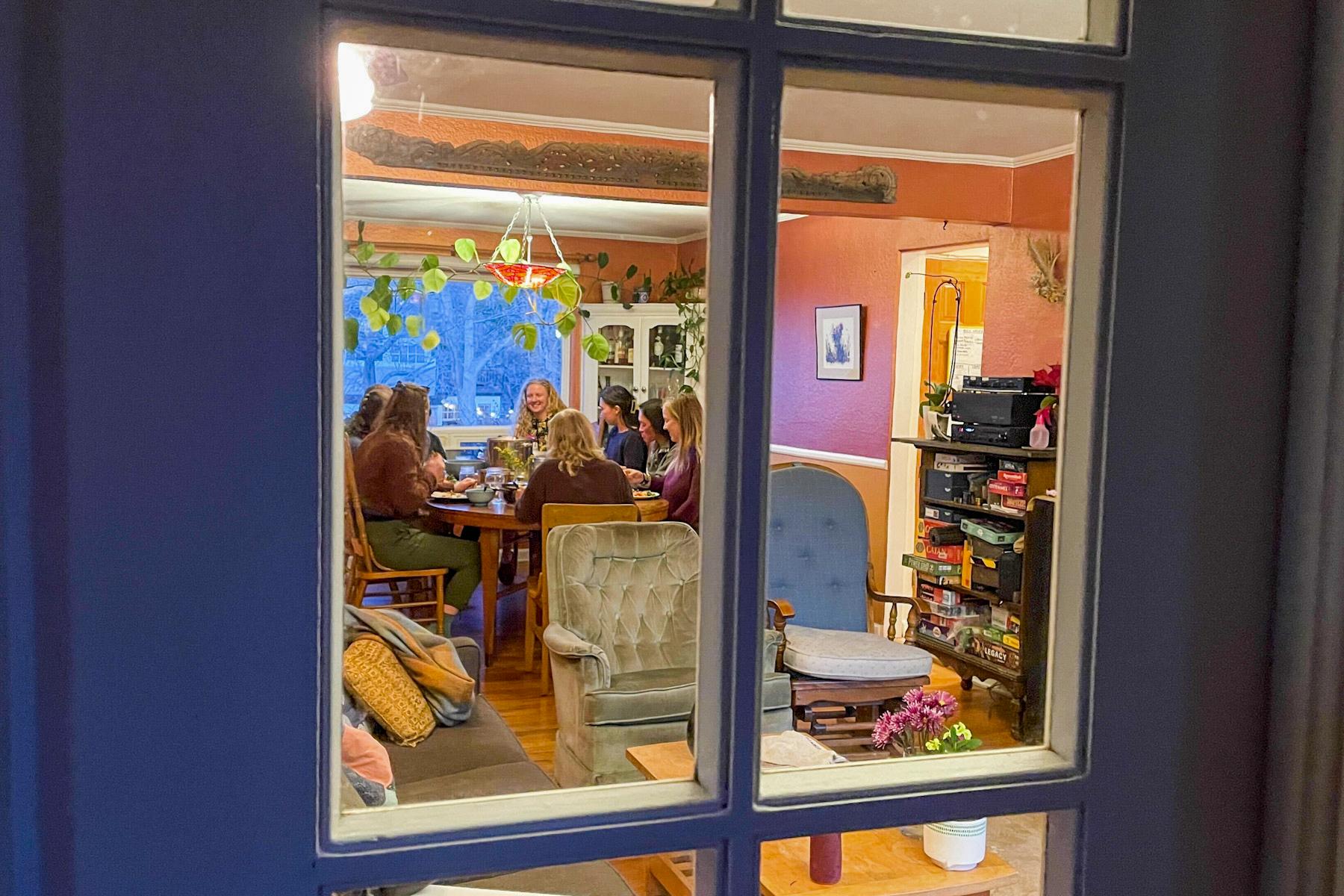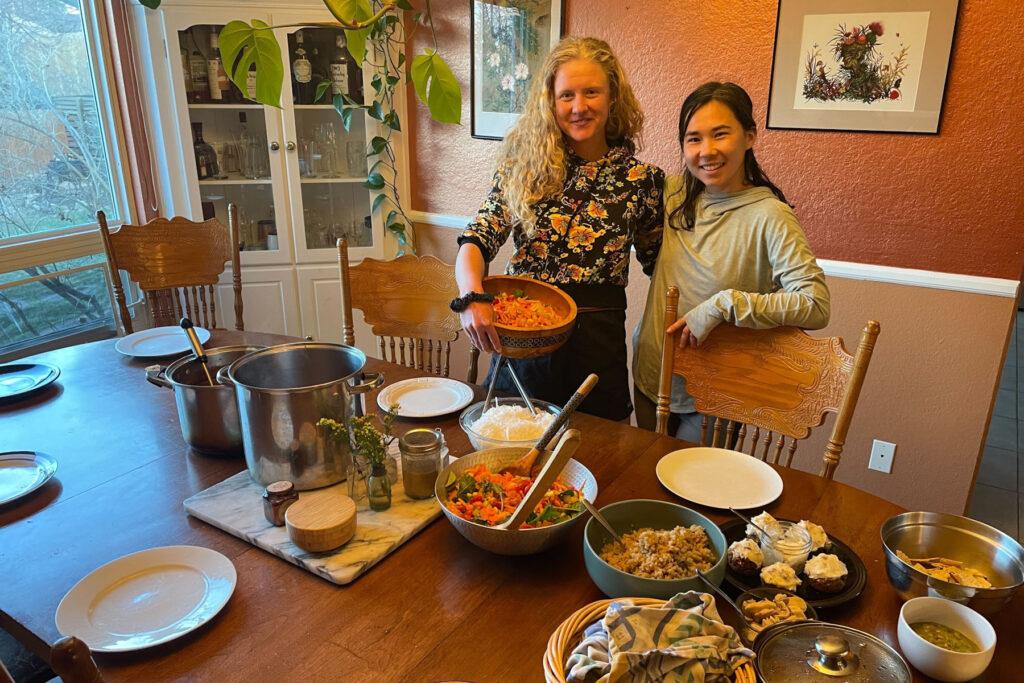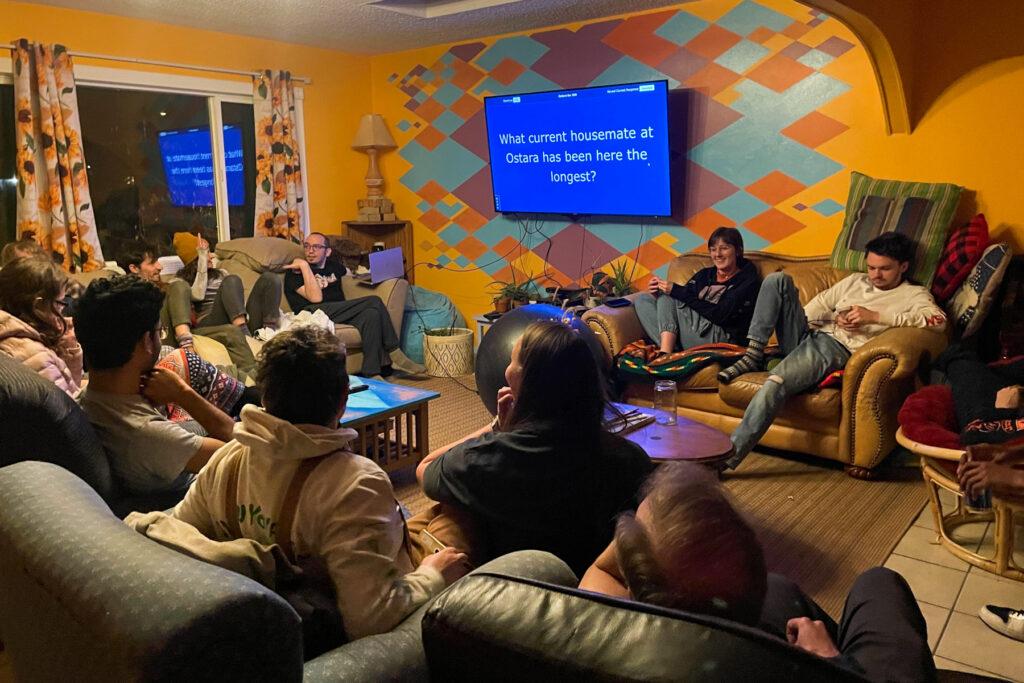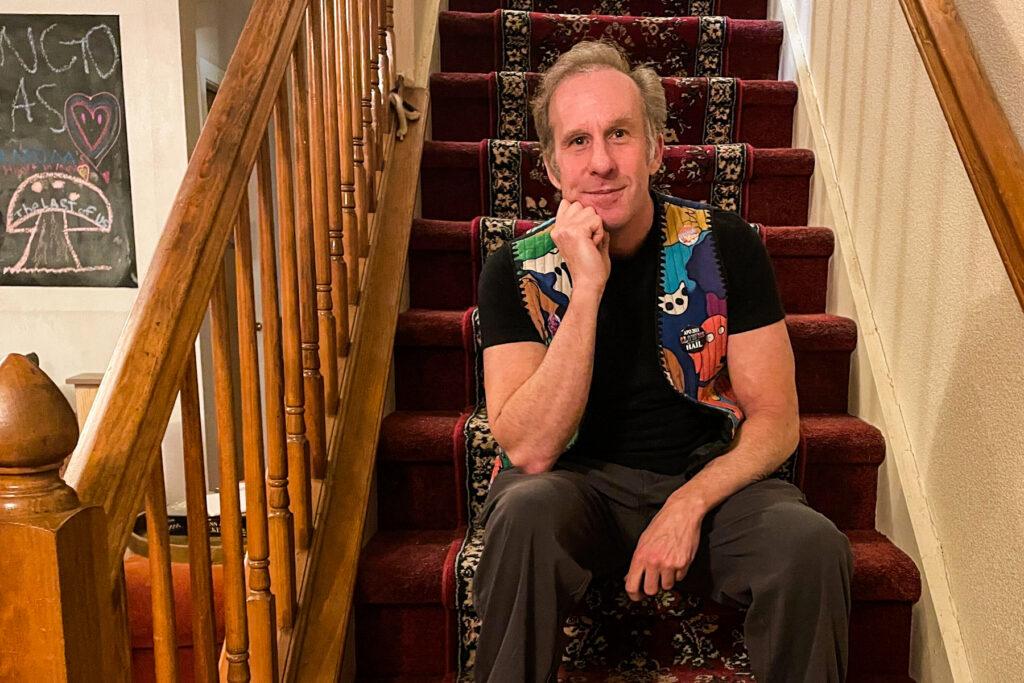
Mango Manor, an unassuming house in Boulder’s Table Mesa neighborhood, feels bigger on the inside.
Almost everything in the house is noticeably scaled up. It has multiple refrigerators, big collections of video games and movies, plus a cornucopia of toiletries in each bathroom. There’s just one exception.
“For 12 people, we have one washer and one dryer,” Kreuter said. “It works out, though.”
Mango Manor is a housing cooperative, a type of residence where 12 or more unrelated people live together. And on a chilly March night, it was even more crowded than usual as the residents prepared for a big potluck.
“We're doing this now once a month,” Don Hall said. “All four co-ops that are part of the Boulder Housing Coalition are coming together to share some food and have some conversation and get to know each other a little bit better.”
Hall was in charge of Mango Manor’s contribution to the potluck, which included a dish dubbed “The Amazing Mango.” It consists of broccoli and tofu in a special peanut sauce. Despite being a relatively new resident of Mango Manor, Hall has lived in housing co-ops for 16 years, and he loves it.
“I'm fascinated by intentional living. We're like a mini society here... We pool our money and buy food together. We have our own kind of governance system using non-violent communication to resolve conflicts, restorative justice and consensus decision making,” Hall said.
Help with the dishes is an added bonus.

What is a co-op?
Co-ops aren’t an inherently new thing. Many people who attend college have lived in dorms, a form of housing cooperative. But unlike dorms, living in housing co-ops is a choice – one primarily sought by people who want a new lifestyle.
Boulder occupancy laws limit how many unrelated people can live under one roof. In most instances, either three or four unrelated people are allowed to cohabitate. But in 2017, the city made a major exception. That year, city council passed Cooperative Housing Ordinance 8119, which legalized co-op houses within city limits.
The modified co-op regulations allow 12 residents to live under one roof in low density districts. The cap rises to 15 residents in all other areas. Co-ops can apply to let in even more residents if they can meet certain conditions, such as guaranteeing affordability.
In order to establish a co-op, applicants must prove they can satisfy minimum living standards. Each co-op must provide at least 200 square feet of living space per resident, for instance.
“An applicant will prepare an application and a set of drawings, typically with a design professional, to make sure that all of the life safety issues are addressed, but also addressing some of the zoning thresholds, bedroom sizes, [and] parking plans,” Charles Ferro, a senior planning manager for the city, said.
Boulder currently allows for three types of recognized co-ops. One is a house where a majority of residents are its owners. The other categories, which are the most common, are both forms of rental co-ops. Those units are required to permanently cap rent at 60 percent of the area’s median income.

So, who would want a dozen roommates?
Bronwyn Walls, the director of community engagement for the North American Students of Cooperation, said her organization helps people across the country establish new co-ops, especially ones where residents are also the property owners.
“What we've seen in the past few years is just a lot more folks reaching out to us with the desire to start a co-op with this model,” she said.
Walls feels co-ops can be a positive addition to most communities, particularly those with limited housing. For one, they offer an alternative for those without substantial income.
Boulder’s affordability mandate is a major part of Boulder Housing Coalition’s mission, according to Lincoln Miller, the non-profit’s executive director. When the city first legalized co-ops in 2017, the organization was able to add Mango Manor to its belt of co-ops.
“[The co-ops house] about 60 folks and all of them are low income. We're dedicated to keeping it affordable in perpetuity, and we want to make more,” Miller said.
Claudia Locke moved to Boulder Housing Coalition’s Ostara co-op while dealing with severe burnout. Affordability was a top priority.
“I had a back injury and a back surgery,” Locke said. “It really was because I was just pushing too hard in my singular life, had to work so hard to pay rent and was doing so many other things. Then I would just come home after really long days and just sit on the couch and not have healthy engagements.”
A lot of artists and young people live at Mango Manor, who see it as an opportunity to focus on their projects without the pressure to juggle time-consuming jobs. At any given moment, someone might be toying with murals in the hallway. Or there might be a jam sesh happening. Resident Jack Peters is working on three different projects, including a psychedelic rock album.
“If you're just trying to work at a restaurant and pursue your dreams on the side, it's impossible unless you find a place like this,” Peters, who is working on three types of projects, including a psychedelic rock album, said.

For many, living in a co-op means living a more sustainable lifestyle. Brett Bidstrup, a resident of the independent co-op Picklebric in Boulder’s Chautauqua neighborhood, is a master’s student at the University of Colorado Boulder studying sustainable food systems. She finds that living in a co-op helps her walk the walk.
“We do a lot of gardening, growing our own food,” Bidstrup said. “Right now we've been doing more food rescue and dumpster diving and trying to find ways to be more sustainable as a group really brings me joy.”
Fellow resident Thariq Shanavas said that while affordability and sustainability are both good, they aren’t the most important thing to him. He said he could probably afford to rent a studio or somewhere with fewer roommates, but his priorities shifted during the pandemic.
“I lived alone for a while and I was really not happy,” Shanavas said. “I like being around people. I like coming home and having people to talk to. I like asking people how their day was.”
Structure and communication are everything
Social support helps keep residents sane, but with more people comes more potential for conflict. Add an endless list of chores and different standards of cleanliness, and there’s a high possibility of roommate fights.
But that’s not typically the case at Boulder Housing Coalition co-ops. Kreuter said there’s constant feedback among housemates to ensure everyone is coexisting peacefully.
“We have our house meetings once a week,” Kreuter said. “As part of the lease and the interview process, you find out that you need to commit to a certain amount of time spent on labor towards the house.”
If conflict arises, each house tries to resolve it internally. If that doesn’t work, they can ask members of other houses and staff within the umbrella organization to intervene.
Independent co-ops outside the coalition, like Picklebric in Boulder’s Chautauqua neighborhood, don’t have that luxury, so internal structure and communication is even more important.
“We put a good amount of time into working on those skills and thinking about how we can prevent conflict as well with just better communication and being really clear and open and honest and kind in our communication,” said Picklebric resident Hannah George.
George said there’s an adjustment period when new residents move in, but it’s usually smooth sailing once they settle down.
“Now I know people want me to speak up when something's bothering me before it becomes an issue. So I can say, ‘Hey, you know, you didn't put the toilet seat down’ or like, ‘Oh, I really like it when the hair gets cleaned out of the shower trap,’” George said.

Miller, the Boulder Housing Coalition’s executive director, admits having a dozen roommates isn’t for everyone, but he believes cooperative living can help address greater issues facing society, like climate change or homelessness.
“That's what we're trying to do by sharing vehicles, by sharing space, by sharing items, by creating more affordability,” Miller said.
There are currently seven recognized co-ops in Boulder, and there’s no limit on how many can operate. Elsewhere, decades-old zoning rules remain an obstacle.
A group in Denver tried to block its city council from expanding occupancy laws in 2021, but 70 percent of voters voted to allow five unrelated adults to live together. Still, co-ops remain virtually nonexistent in a city plagued by high housing costs.
Correction: An earlier version of this story incorrectly identified what kinds of co-ops the coalition turned into housing after the city legalized them in 2017.
Funding for public media is at stake. Stand up and support what you value today.









